
46 Psychological Marketing Examples for Smarter Marketing
Before the dawn of digital marketing, before buzzwords like “customer-centric” or “consumer behavior”, the relationship between marketing and psychology was little if not void. Enter: psychological marketing!
Psychological marketing (or marketing psychology) is now the cornerstone of any successful company.
Every marketing department will have consulted, hired, or created a team dedicated to carrying out marketing psychology research.
Marketing psychology will indicate your competitive edge in the market and allow you to get a more holistic picture of your customers.
What is Marketing Psychology?
Marketing psychology anticipates buyer behavior by understanding our cognitive biases. As consumers, we are irrational, and our decision-making is largely driven by these innate biases.
Marketing psychology, therefore, applies theoretical knowledge to the marketing field.
Digital marketing capitalizes on this and applies these psychological insights to optimize campaigns, ads, and copy to drive purchase behavior: its smarter marketing across every channel and customer touchpoint!
Why is buyer behavior and psychology important for marketing?
In this context, buyer behavior and psychology are used in tadem to alleviate the stress of shopping, as well as personalize, streamline, and elevate customer experiences (CX).
We’ll see how marketers have put psychology into action throughout this article. This is key for brands seeking to compete in the customer-centric digital age.
That being said, we’ve compiled a list of forty-seven marketing psychology principles for you to understand and see examples of.
Read first. Implement accordingly. Thank us after.
Marketing Psychology Examples
1. Authority
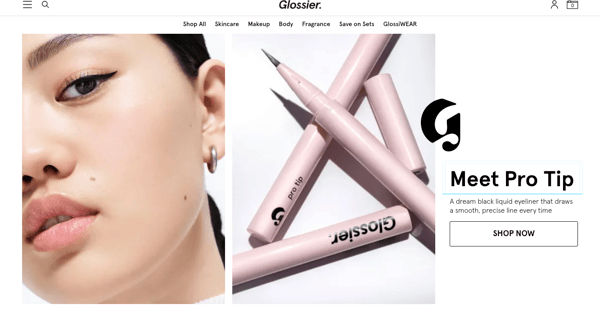
Glossier leverages Authority to boost the trustworthiness of their product; “Pro Tip” infers that this is the eyeliner that professionals use.
Authority refers to the theory that consumers trust people who are in charge.
Markings of authority can either be expertise, titles, uniforms, or recommendations that establish you as thought leaders, experts, or sources of credible information.
2. Liking
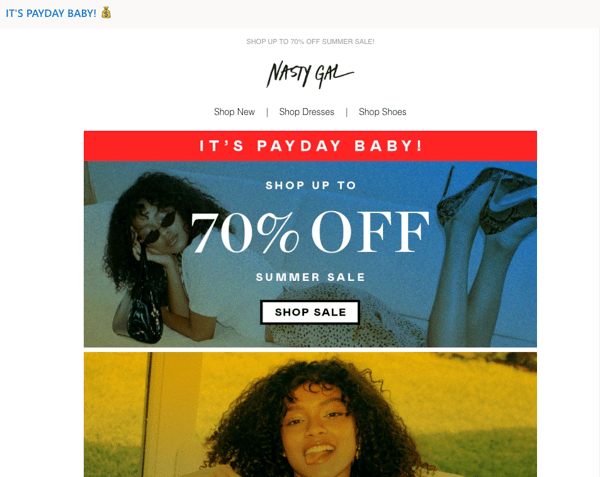
The NastyGal email leverages likeability because it uses the vocabulary of its target audience and shows women that reflect their audience in physical attractiveness and similarity.
Much like our innate responses to Authority, it’s only natural that we respond to things that we like in a positive way.
Liking can be instilled by:
- Physical attractiveness
- Similarity
- Association
- Cooperation or contact
Sure, the discount helps too, but that’s called Price Sensitivity…
3. Price Sensitivity
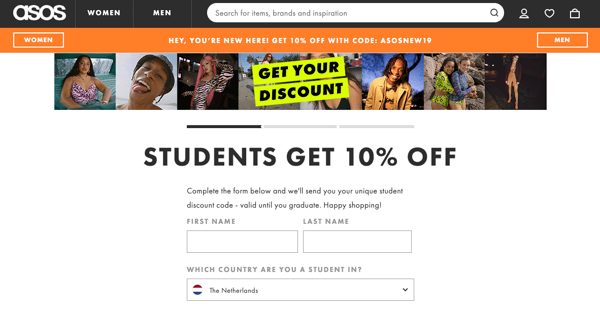
This ASOS discount targets students. So it’s no wonder that they appeal to their tight wallets with a tempting discount.
Understanding how your consumers react to different price levels shows your awareness of your price point, consumer demand, and your operating marketplace.
You should track competitive product prices and analyze which target consumer bases react better to offers or discounts. Because, contrary to popular belief, discounts don’t always drive purchase behavior.
4. Urgency Scarcity
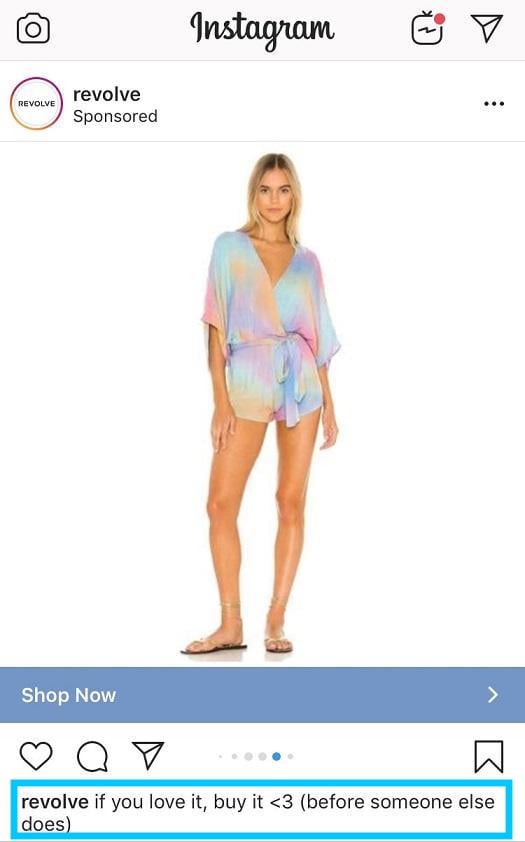
In this Instagram ad, Urgency Scarcity is leveraged by implying that other shoppers will grab the chance to buy this Revolve product. Scarcity instills a sense of urgency in a shopper.
Psychologically, fewer opportunities = a threat to our freedom. We react against this in order to “preserve our established prerogatives” (Cialdini, Influence).
You can leverage Urgency Scarcity by showing a limited number or deadline.
5. Exclusivity Scarcity
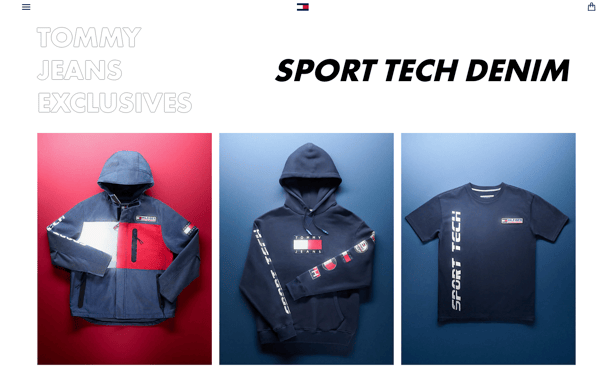
On the other hand, Tommy Hilfiger presents an exclusive line. Exclusive products appeal to people who wish to seek status or establish their uniqueness because they are seen to be of higher value. In this case, rarity implies value.
In order to show Exclusivity Scarcity, you could:
- Highlight lines of products that are one-of-a-kind
- Send exclusive updates to your members
- Place product tags like “limited edition” or “short supply” over your scarce products
6. Social Proof
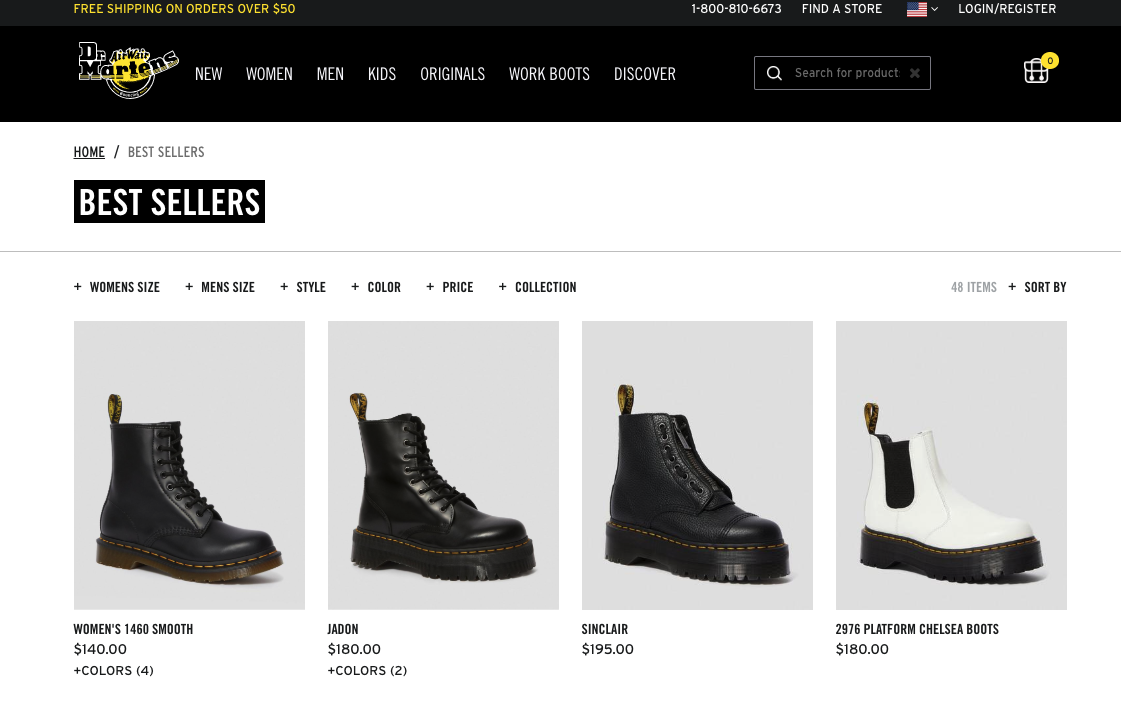
There’s a reason for the laughter track on sit-coms and comedies, even if you hate this so-called “canned laughter”. Cialdini attributes this phenomenon to Social Proof. In other words, doing what other people are doing because other people are doing it.
In marketing, Social Proof can be shown with copy promoting things like:
- Fans
- Reviews
- Popularity
- Bestsellers
- Other shoppers looking/buying your products
- Influencer marketing
7. Unity
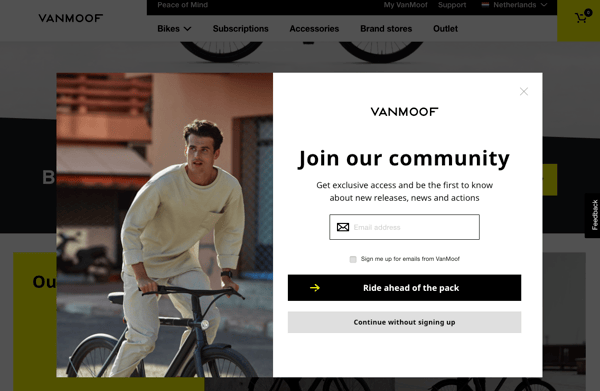
Van Moof leverages Unity by asking their customers to join their community. Unity is also a form of Social Proof because it encourages people to be a part of something.
Togetherness can be fostered by emphasizing a “we mentality” or by framing your campaigns with “be one of the few” or “join the group” (read how the climate change strikes capitalize on this for more information).
8. Commitment & Consistency
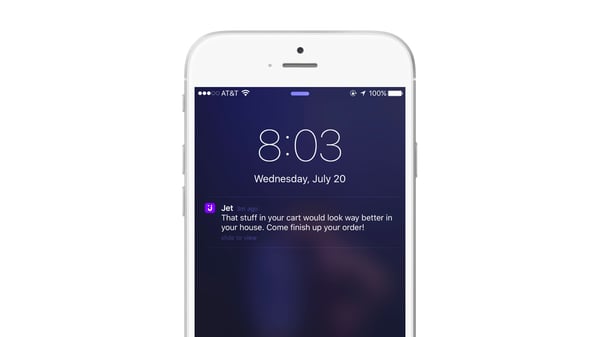
Jet’s notification reminds its customers to remain consistent with their purchases.
This leverages the theory of Commitment & Consistency, which explains that people feel obliged to behave consistently with their commitments.
You could deliver notifications that remind your customers about what they have in their carts or encourage them to sign up for newsletters, campaigns, or offers.

















